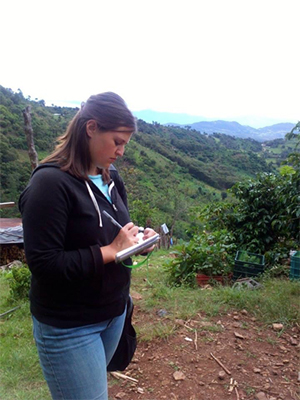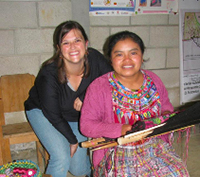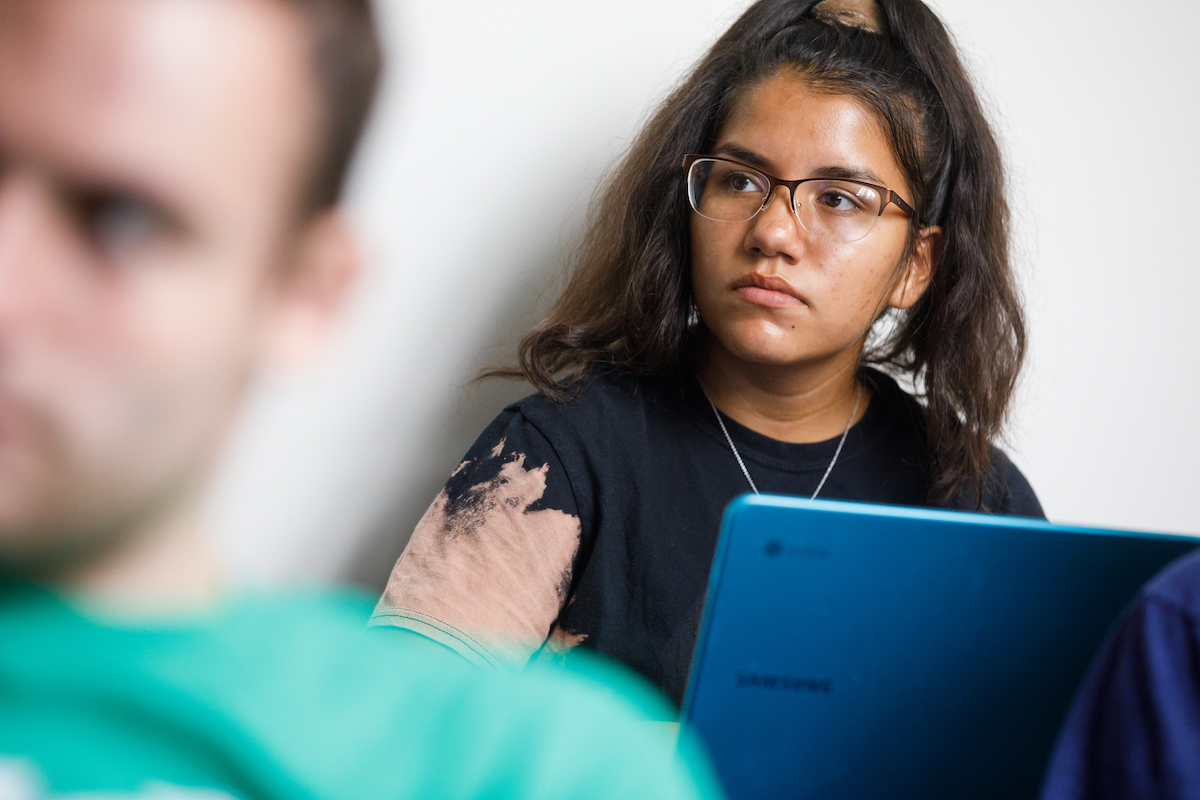Improving Health Outcomes for Maya Peoples a Focus for Anthropology Professor
Related Programs
Related Posts
Connect With Us
July 18, 2022
By Jake Weber

Meghan Farley Webb on location in Guatemala. She joined the faculty of Albion’s Department of Anthropology and Sociology in 2018.
Dr. Meghan Farley Webb, assistant professor of anthropology, has spent decades doing both academic and humanitarian work among some of the Western Hemisphere’s most marginalized people — in her case, non-Spanish-speaking Indigenous Maya living in Central America. That work — not to mention the health of many poor Maya — should change for the better over the next four years, thanks to an $8 million grant from the U.S. Department of Labor, aimed at a surprising threat to the health of agricultural laborers.
Many might naturally perceive malaria, or perhaps some other infectious disease, to be the threat. But they would be way off the mark. Through her work with the Maya Health Alliance (MHA), Webb is helping Kaqchikel Maya reduce the epidemic of chronic kidney disease of non-traditional origin (CKD-nT), a large and growing concern in their community.
As Webb explains it, CKD-nT, unlike kidney disease linked to diabetes or heart disease, is a concern related to agricultural labor in warm areas getting warmer with climate change. “We’ve known for a long time that dehydration and heat stroke are problems for people who work in fields all day,” she says. “Now we’re seeing that relatively young, relatively fit sugar cane workers are developing kidney disease. It seems to be related to chronic heat stress, and not due to pesticides or other factors.”
The Department of Labor funding was awarded to La Isla Network, a global health organization working on the front lines of CKD-nT. La Isla Network will coordinate the work of the grantee organizations in El Salvador, Guatemala and Honduras who are working together to produce health education materials, evaluate effective cooling methods, and work with governments and industry to ensure best occupational health practices. Webb, in her capacity as a researcher at MHA, will facilitate the activities taking place among sugar cane workers in Guatemala.
“CKD-nT doesn’t just affect individual workers; it has an impact on families, on communities, local healthcare facilities,” Webb says, noting that chronic disease even touches international concerns, including migration. “As individual researchers it can be overwhelming to think about issues like transnational migration. But we can help create sustainable systems that might relieve the pressure in ‘sending communities.’ Putting up shade tents, making sure there’s hydration and that the social safety net is navigable — these are tangible things we can do, and they will have a real impact on people’s lives.”

Webb’s connection with Maya communities goes back to her study-away experience as an undergrad at Centre College.
Over more than a decade working with MHA, Webb has overseen its Spanish-to-Mayan translation projects, even while teaching at Albion. It can be a lot to juggle, but Webb says her work at MHA satisfies her need to “give back to communities” — and it benefits her students as well.
“I teach our Global Health and Medical Anthropology courses,” she says. “Students appreciate not just having statistics, but an idea of what things look like on the ground. It’s easy to forget that these statistics comprise individual people and their stories. My work with MHA gives students insights into the ‘micro level,’ and how the macro level plays out.”
Webb smiles at the thought of how her own liberal arts background “played out” in leading her to this opportunity. “I did a semester abroad in Mexico where we visited Maya communities. I never thought I would end up, 20 years later, doing global health work in a Maya community,” she says. “Life is full of circuitous paths that may not directly lead to what you’ll do, but they end up shaping your perspective and values. And they might even become your work. That’s the great thing about the experiences you can have at a place like Albion.”
For more information on the grant see the Department of Labor’s press release.
